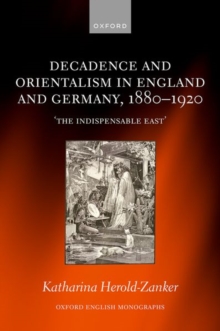
The Poet's Mind : The Psychology of Victorian Poetry 1830-1870 PDF
by Gregory Tate
Part of the Oxford English Monographs series
Description
The Poet's Mind is a major study of how Victorian poets thought and wrote about the human mind.
It argues that Victorian poets, inheriting from their Romantic forerunners the belief that subjective thoughts and feelings were the most important materials for poetry, used their writing both to give expression to mental processes and to scrutinise and analyse those processes.
In this volume Gregory Tate considers why and how psychological analysis became anincreasingly important element of poetic theory and practice in the mid-nineteenth century, a time when the discipline of psychology was emerging alongside the growing recognition that the workings of the mind might be understood using the analytical methods of science.
The writings of Victorian poets often showan awareness of this psychology, but, at the same time, the language and tone of their psychological verse, and especially their ambivalent use of terms such as 'brain', 'mind', and 'soul', voice an unresolved tension, felt throughout Victorian culture, between scientific theories of psychology and metaphysical or religious accounts of selfhood.
The Poet's Mind considers the poetry of Browning, Tennyson, Arnold, Clough, and George Eliot, offering detailed readings of several majorVictorian poems, and presenting new evidence of their authors' interest in contemporary psychological theory.
Ranging across lyric verse, epic poetry, and the dramatic monologue, the book explores the ways in which poetry simultaneously drew on, resisted, and contributed to the spread of scientific theories ofmind in Victorian Britain.
Information
-
Download - Immediately Available
- Format:PDF
- Publisher:OUP Oxford
- Publication Date:08/11/2012
- Category:
- ISBN:9780191634321
Information
-
Download - Immediately Available
- Format:PDF
- Publisher:OUP Oxford
- Publication Date:08/11/2012
- Category:
- ISBN:9780191634321










